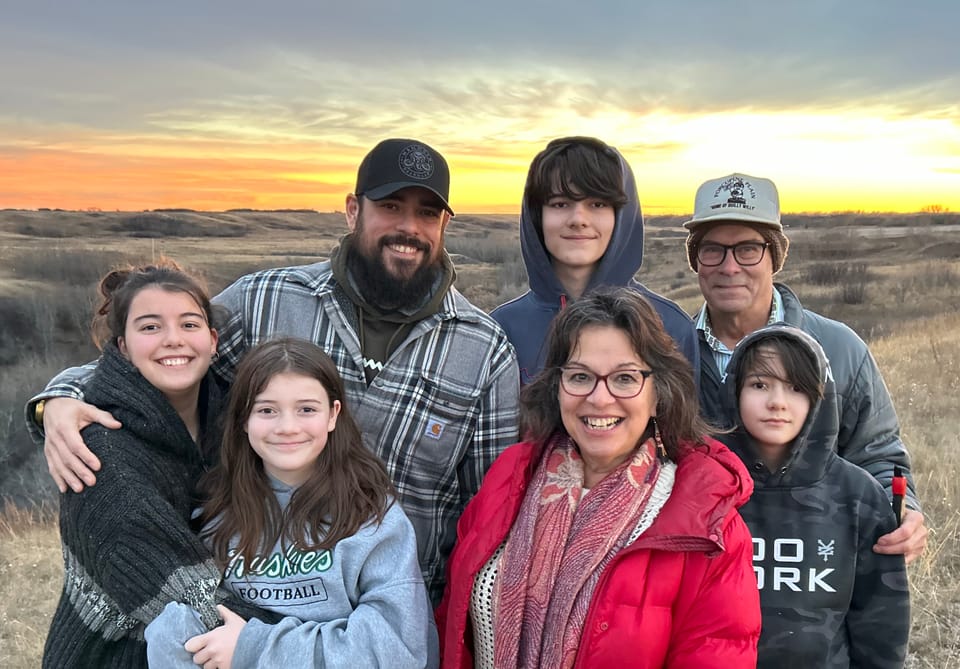Family as Ops Stack

How a Local Backbone Outperforms Franchises
Ben Beveridge | Good Hands | July 2025
People keep asking how we built this so fast.
How a rural utility in a town of 2,000 runs cleaner than most city trades businesses.
How we get same-day response times, zero no-shows, tight profit margins, documented service, and nearly 100% client retention.
Here’s the real answer:
We didn’t build a franchise.
We built a family ops stack.
And it’s not a metaphor.
What’s an Ops Stack?
An ops stack is your operational foundation.
- Who makes the decisions?
- Who executes them?
- What happens when something breaks?
- What fills the gap when a worker doesn’t show, or a van dies, or a snowstorm hits?
Franchises answer that with process manuals, software systems, and middle managers.
We answer it with people we trust who live five minutes away.
Our Ops Stack Looks Like This:
- Ben: Founder, operator, escalation layer, and oversight
- Greig: Project Manager and heavy equipment operator
- Dani: Administrator, scheduler, service controller, client comms
- Alec: Skilled field work, snow and seasonal, backup operator
- Don and Carolyn: Neighbours as part of our check-in team
- Vanessa, Cameron, Amelia: Core task rotation — lawn, maintenance, inspections
- Trusted partners: Marie, Clayton, Jose, Mack, and Pascal — always one call away
Every name above is local. Known. Accountable.
Not a contractor from out-of-town.
Not a number on a roster.
Not a temp worker from an agency.
These are people who can walk to your house, answer their phone, and text the admin when something’s done.
That’s why we can guarantee what others can’t.
Franchises Fail in Rural Markets Because They Assume Compliance Equals Care
You can mandate uniforms.
You can install scheduling apps.
You can run training.
But you cannot automate local care.
You cannot fake embedded trust.
In Watrous and Manitou, people don’t just remember your work — they remember your name.
And that’s why systems don’t work here unless they’re personal.
A franchise can fill a route.
We can fill a gap — in snowstorms, storm damage, medical leave, or middle-of-the-night emergencies.
Because when you know the family, you know the follow-through.
No HR Department Needed. Just Relational Integrity.
We don’t need a hiring pipeline.
We don’t need a retention plan.
We don’t need quarterly performance reviews.
Here’s what we have instead:
- Operators who text when they’re done
- An administrator who sees every billing request
- A founder who drives to the site if something is wrong
- A team that covers for each other — because they eat at the same table
The structure is relational. The execution is operational.
That’s the Good Hands advantage.
Built for Rural. Built for Resilience. Built to Last.
You can’t buy this model.
You can’t franchise it.
You can’t fake it with branding.
You can only build it — slowly, intentionally, with the right people in the right place.
This is why Good Hands is stable.
Why it can scale without stress.
Why it survives weather, turnover, and volume shocks.
Because our ops stack is family.
And our system is simple:
If one drops, another steps in.
If one forgets, another catches it.
If one sees risk, everyone knows.
Franchises can’t offer that.
Good Hands does. Every single day.
This isn’t just a business model.
It’s a local operating system for trust.
And it works.